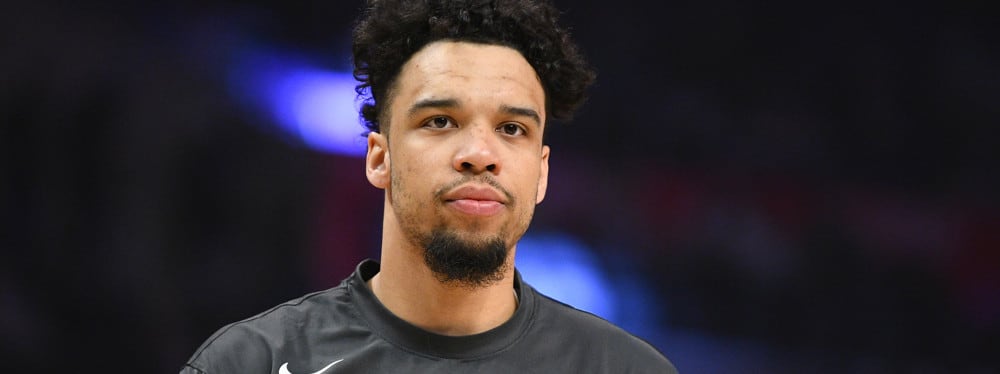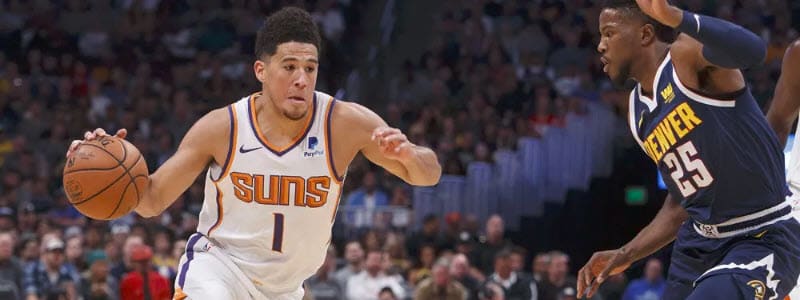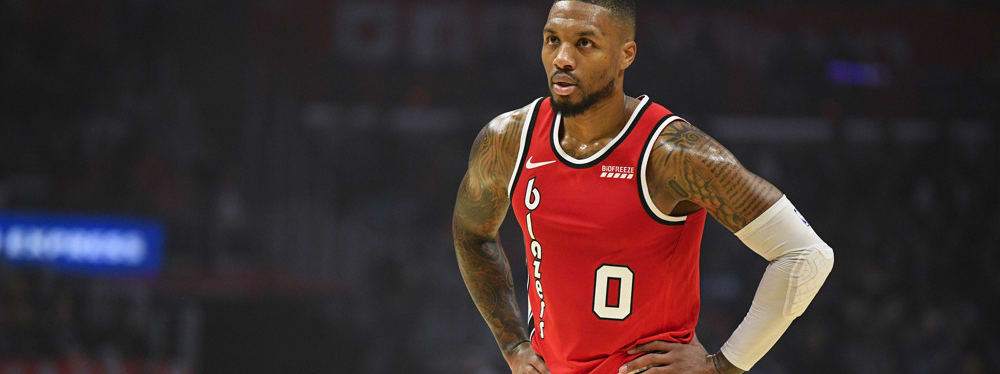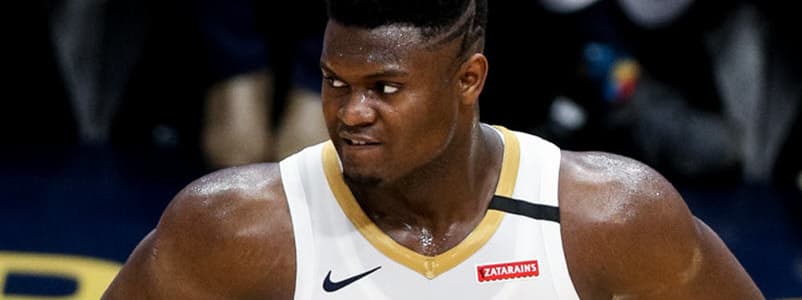Recent RotoWire Articles Featuring J.J. Barea
See More
What was shaping up as another solid all-around season for Barea came to a grinding halt just after the calendar flipped to 2019 when he tore his Achilles on Jan. 11 versus the Timberwolves. At the time, the veteran guard was averaging 10.9 points, 5.6 assists and 2.5 rebounds across 19.8 minutes over 38 games, all which he'd appeared in off the bench. Despite the truncated campaign, it was the fourth consecutive season with double-digit scoring for Barea, whose assists average was also the third-highest of his career. The 35-year-old was also heavily involved on offense relative to playing time, as evidenced by his 10.1 shot attempts per contest. The upcoming season doesn't shape up to be quite as productive for Barea, however. For starters, he doesn't figure to be at full strength until sometime around the beginning of the new calendar year, Then, whenever he does make his season debut, he'll find a crowded backcourt field in Dallas. Offseason acquisitions Delon Wright and Seth Curry bump Barea down a couple of notches in the backcourt rotation, while 2018 second-round pick Jalen Brunson could also see an increase in the 21.8 minutes he logged during an impressive rookie season. Players of Barea's age coming off serious lower-body injuries aren't exactly stellar fantasy prospects to begin with, and the personnel logjam at the guard position in Dallas only serves to depress Barea's outlook further.
Despite operating as the backup point guard to Dennis Smith for much of the year, Barea was still very effective in a reserve capacity and provided a key veteran presence for a young roster. His biggest contribution came as a facilitator with the second unit, as the 34-year-old ultimately finished with a career-high 6.3 assists across 23.2 minutes. Barea chipped in with 11.6 points, 2.9 rebounds and 1.7 three-pointers as well, while shooting 43.9 percent from the field and 36.7 percent from beyond the arc. It's safe to say that he didn't appear to be impacted by his age and has at least a handful more seasons left in tank. As a result, he'll remain with the Mavericks for his 13th NBA season heading into the 2018-19 campaign. He'll once again act as a mentor to some of the younger guards on the roster, but he could struggle to match the 23.2 minutes per game he averaged a year prior. While Seth Curry was allowed to walk in free agency, Dallas re-signed Devin Harris and then drafted Jalen Brunson with the 33rd overall pick in the 2018 NBA Draft. Both players are considered true point guards, which is the position Barea played exclusively last year. Luka Doncic was also selected with the third overall pick in the draft and is tentatively penciled in as the starting shooting guard, adding yet another body to the backcourt rotation. With all of that said, Barea's respectable numbers from the 2017-18 season will likely fall across the board.
An early season injury to Deron Williams pushed Barea into a decent sized role out of the gates, but he eventually succumbed to severe calf injury of his own, limiting him to just 35 total games. In that limited court time, Barea averaged 10.9 points, 2.4 rebounds, 5.5 assists and 1.5 three-pointers across 22.0 minutes. However, with the Mavericks going through a mini rebuild and likely opting for a youth movement in the backcourt, it appears Barea's path to playing isn't so clear anymore. The Mavericks drafted point guard Dennis Smith in the first round of the 2017 NBA Draft and he's expected to jump in as a starter right away. Both Yogi Ferrell and Seth Curry are also still around, meaning Barea will have to fight for scraps as the second or third point guard with the two aforementioned players. At this point in his career, the 33-year-old Barea will be more of a veteran mentor than anything.
The 32-year-old Barea is coming off of one of the better seasons in recent years, as he appeared in 74 games and posted averages of 10.9 points, 4.1 assists, and 2.1 rebounds per game, while shooting the best percentage of his career from the field (44.6%) and the second-best percentage of his career from three-point range (38.5%). While it was an encouraging bounce back from two consecutive lackluster seasons, it's reasonable to believe that 2015-16 represented the best-case scenario for Barea going forward. He projects to hold a similar role again this season, but he'll still have to compete with Deron Williams, Wesley Matthews, and Devin Harris, not to mention free-agent addition Seth Curry, for minutes. Barea should have no trouble carving out a regular bench role, but he's unlikely to be fantasy relevant in most leagues, barring an injury or two in the Mavs' backcourt.
After three up-and-down years in Minnesota, Barea returned to Dallas prior to the start of the 2014-15 season. A member of the 2011 Mavs title team, the diminutive point guard returned to his sparkplug role off the bench. He played in 77 games, averaging 18 minutes per game, and finished the year averaging 7.5 points, 3.4 assists, and 1.7 rebounds. His shot improved a bit in a Mavericks uniform as he shot 42 percent from the field and 32 percent from three-point range, up from 38 percent and 31 percent during his final year with the Timberwolves. Barea signed a four-year deal to return to Dallas in the offseason and will be the primary backup point guard entering the year. His role with the Mavericks remains unchanged, and he's capable of providing instant offense in a hurry. Still, his overall productivity is sporadic, and he remains a liability on defense.
Jose Barea enters his fourth season with the Timberwolves in an inconclusive role. Mo Williams signed with Minnesota to be the backup point guard, so the 30-year-old Puerto Rican will need to either beat Williams out for minutes or find a new role. As Ricky Rubio's principle backup in 2013-14, Barea appeared in 79 games (starting one) and averaged 8.4 points, 0.9 three-pointers, 1.9 rebounds, 3.8 assists, and 0.3 steals in 19 minutes per game. He only hit 39 percent of his field goals (his lowest rate since his rookie season), 32 percent of his three-pointers, and 79 percent of his free throws. Barea's three-point percentage has decreased in each of his three years in Minnesota, so he may bounce back in 2014-15 if he can forge a role on the team. It may help that he is more familiar with most of the TImberwolves roster compared to Williams, but Barea will have to prove to be more than a heat check guy. His fantasy value hinges mainly on injuries ahead of him on the depth chart. Both Rubio and Williams have been known to miss chunks of seasons, so Barea may be a player to keep an eye on.
Barea is set to backup Ricky Rubio at point guard. While his totals from last year were nearly identical to the previous season (he averaged 11.3 ppg in both 2011-12 and 2012-13), he was somewhat inconsistent as he had 16 games where he scored five or less points. He also saw his assist-to-turnover ratio decline slightly. Barea can be an offensive spark plug off the bench and got playing time at shooting guard amid Minnesota's many injuries last season, but he may have a more limited backup point guard role this season with several new swingmen in the mix.
It was a curious move when Minnesota signed Barea as a third point guard last summer as it seemed unlikely he'd have a major role. However, he provided needed depth with Ricky Rubio suffering a torn ACL and Luke Ridnour missing 13 games with an ankle injury. When Barea was healthy and in the lineup, he was capable of putting up strong numbers. For example, Barea averaged 16.8 ppg and 9.8 apg over the final 13 games with both Ricky Rubio and Luke Ridnour out with injuries. Health was an issue as he missed 25 games with thigh, ankle, calf and hamstring ailments. At 6-0 and 175 pounds, his slight build and attacking style makes him a continued injury risk. Still, he averaged a career-high 5.7 assists per game and could be the team's primary point guard until Ricky Rubio returns.
The diminutive point guard proved to be a sparkplug for the Mavricks last season and even started a game in the NBA Finals. He then signed a four-year, $19 million contract with Minnesota in the offseason. Barea is a great ball handler and hustles on defense. He could be the backup point guard to Ricky Rubio in Minnesota and head coach Rick Adelman has even talked of using him at shooting guard. He's an average shooter and his 5-11 height will limit his upside, but he could see increased playing time with his new team.
The Mavericks picked up the team option on Barea's contract for the 2010-11 season, which means he'll get some playing time-mostly as Jason Kidd's back-up. Unfortunately, Jason Kidd is really good and Rodrigue Beaubois is the heir apparent at the point for Dallas. Ultimately, that gives Barea little value.
The diminutive point guard proved that despite his stature he belongs in the NBA. He notched a career-high in minutes (20 per game) and averaged 7.8 points and 3.4 assists while hitting several clutch shots late in games. Barea will play a similar role this season and could help in deeper leagues.
After re-signing in the offseason, the third year point guard from Puerto Rico managed only 4.3 points per game when given the opportunity last season, and at 6-0 remains undersized.
Barea spent much of last season in the NBDL, and there is debate over whether he will even earn a roster spot this year. However, the Northeastern product has found success in various summer leagues, especially given his ability to score and distribute the basketball. Still, if he even makes the Mavericks roster, look for him to be the last guard off the bench and receive only garbage time minutes.
Barea is battling for the Mavericks' final roster spot, and should therefore not warrant much fantasy consideration, if he even makes the team at all.












